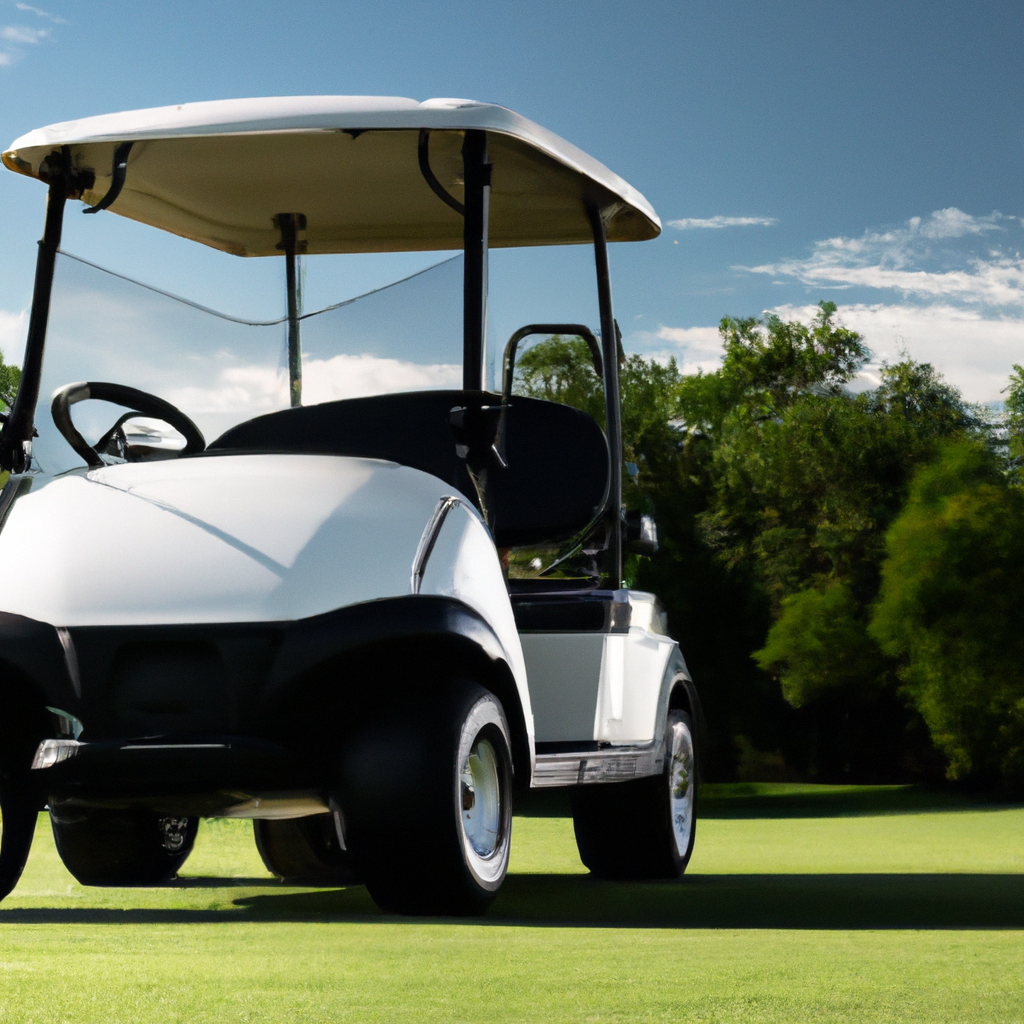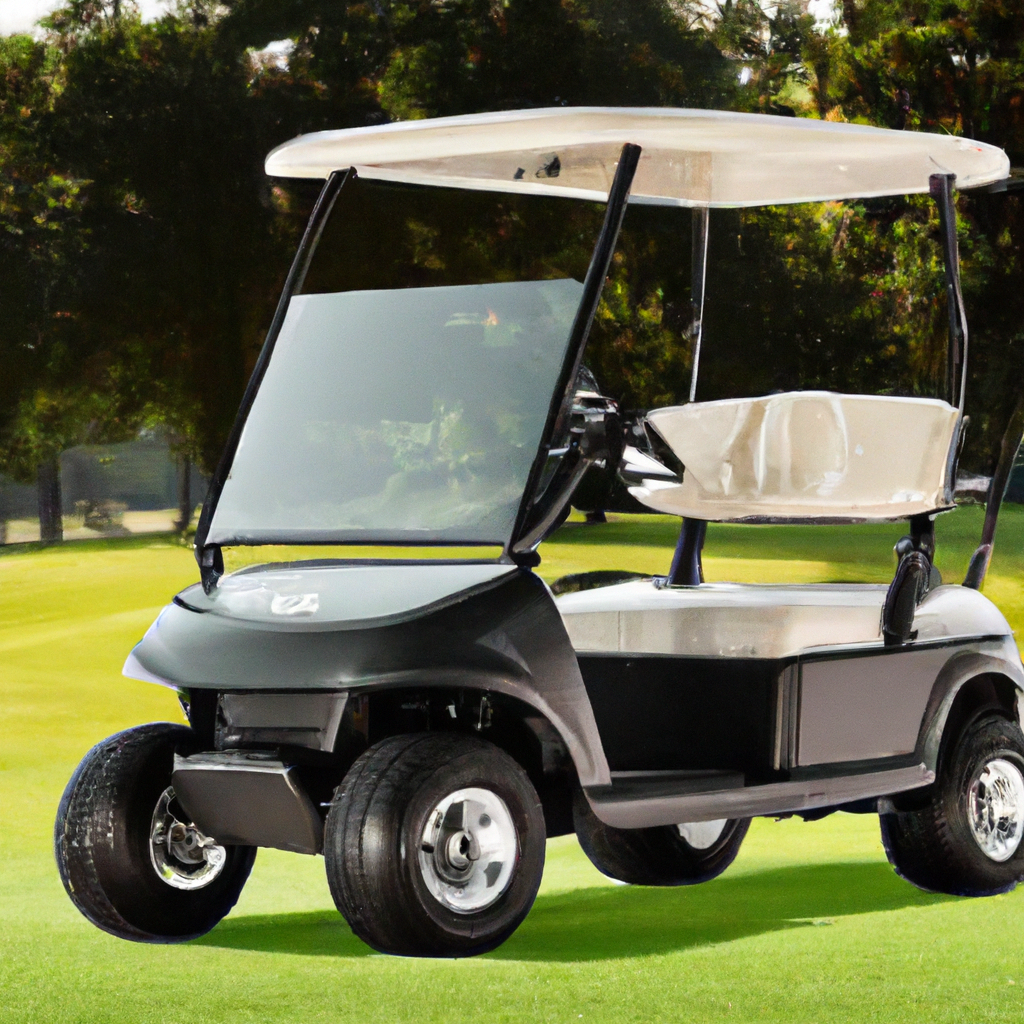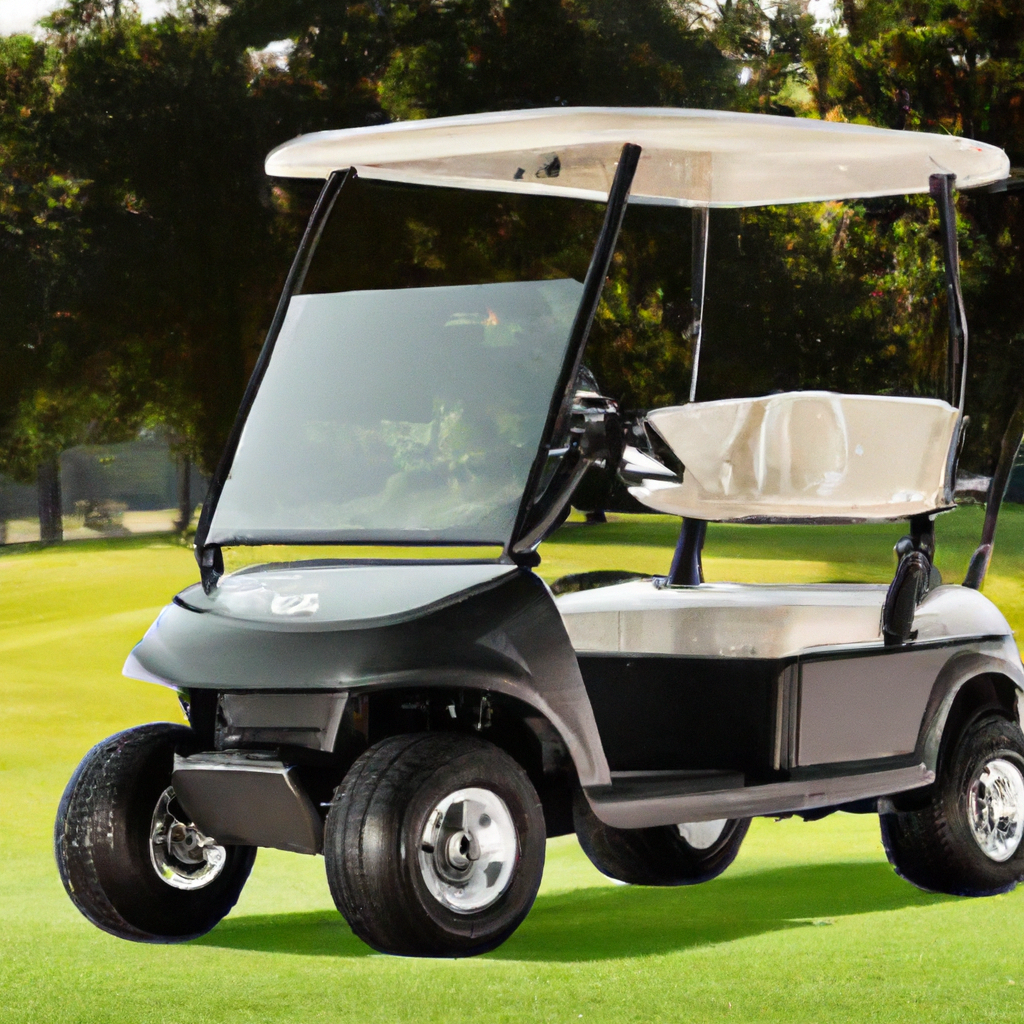We may earn money or products from the companies that may be mentioned in this post.
Have you ever wondered about the weight of a golf cart? It’s a common curiosity among golfers and enthusiasts alike. The weight of a golf cart varies depending on various factors such as the make, model, and materials used. However, on average, a standard golf cart weighs around 900 to 1,000 pounds. This weight includes the battery, seats, and other essential components. Understanding the weight of a golf cart is not only interesting but also important for maintaining and transporting these vehicles. So, let’s explore further and uncover the factors that influence the weight of a golf cart.
Factors Affecting Golf Cart Weight
When it comes to golf carts, weight plays a crucial role in determining their performance and functionality. Various factors contribute to the weight of a golf cart, and understanding these factors can help you make an informed decision when choosing the right cart for your needs. In this article, we will explore the different aspects that affect the weight of a golf cart and delve into each factor in detail.

Frame Material
The frame material of a golf cart is one of the primary factors that contribute to its weight. Different materials offer varying levels of strength, durability, and weight characteristics.
Steel Frames
Golf carts with steel frames are known for their sturdiness and durability. However, steel is a dense material, which means that the cart’s weight may be on the heavier side. While steel frames provide excellent structural support, they may not be the ideal choice for individuals who prioritize lightweight and maneuverability.
Aluminum Frames
Aluminum frames are a popular choice among golf cart manufacturers and enthusiasts due to their lightweight nature. Golf carts with aluminum frames offer better fuel efficiency, improved handling, and easier maneuverability. However, while aluminum frames provide excellent weight advantages, they may not be as sturdy or durable as steel frames.
Fiberglass Composite Frames
Fiberglass composite frames are relatively lightweight and offer a good balance between durability and weight. These frames provide excellent resistance to corrosion and are a popular choice for golf cart owners who prioritize longevity and performance. However, fiberglass composite frames may be more expensive compared to steel or aluminum frames.
Battery Type
The type of battery used in a golf cart significantly impacts its weight. Golf carts can be equipped with either lead-acid batteries or lithium-ion batteries.
Lead-Acid Batteries
Lead-acid batteries are the traditional choice for golf carts. They are heavy and bulky, which significantly increases the overall weight of the cart. While lead-acid batteries may contribute to a heavier cart, they are typically more affordable and widely available compared to lithium-ion batteries.
Lithium-Ion Batteries
Lithium-ion batteries have gained popularity in recent years due to their lightweight nature and increased energy efficiency. These batteries are much lighter than lead-acid batteries, reducing the overall weight of the golf cart. Additionally, lithium-ion batteries offer longer lifespan and faster charging times. However, they tend to be more expensive initially compared to lead-acid batteries.
Number of Seats
The number of seats in a golf cart also affects its weight. Golf carts come in various seating options to accommodate different needs.
2-Seater Golf Carts
2-seater golf carts are the most compact and lightweight option available. These carts are perfect for solo golfers or couples who prioritize maneuverability and ease of use. With only two seats, they offer reduced weight compared to larger golf carts.
4-Seater Golf Carts
4-seater golf carts are ideal for families or small groups who like to golf together. With two extra seats, these carts offer increased passenger capacity but also an increase in weight. It’s important to consider the number of seats you need in your golf cart while also taking into account the weight implications.
6-Seater Golf Carts
6-seater golf carts provide even greater passenger capacity, making them suitable for larger groups or events. With additional seats, these carts naturally become heavier. If you require a cart with a high seating capacity, it’s crucial to consider the weight implications and ensure that the cart’s other components can handle the increased load.
Customizable Seat Options
Some golf carts offer customizable seat options, allowing you to adjust the seating layout according to your needs. While this flexibility can be convenient, it’s important to keep in mind that any additional seats will contribute to the overall weight of the cart.

Accessories
Golf cart accessories can significantly impact the overall weight of the vehicle. Depending on your preferences and requirements, different accessories may be added to a golf cart.
Roof and Windshield
Roofs and windshields are common accessories in golf carts, providing protection against sun, rain, and other weather conditions. While these accessories offer practical benefits, they can add extra weight to the cart.
Rear Seat Kit
A rear seat kit is a popular accessory for those who require additional seating capacity. This accessory typically allows for the conversion of a 2-seater golf cart into a 4-seater or 6-seater, depending on the model. Rear seat kits can significantly increase the weight of the cart due to the added structure and seating materials.
Enclosure/Curtain
Golf cart enclosures or curtains provide an enclosed space and protection from external elements. While they offer comfort and utility, they can contribute to the overall weight of the cart.
Golf Bag Holders
Golf bag holders are essential for golfers who want to bring their clubs along. While these holders may seem negligible in terms of weight, they can still add to the overall weight of the golf cart.
Rear Cargo Bed
Rear cargo beds are useful for carrying additional items such as coolers, tools, or other equipment. These beds offer practicality, but they do add weight to the cart.
Lights and Indicators
Lights and indicators are essential for safety during low-light conditions or when driving on public roads. While their weight may not be considerable, it’s worth considering the overall weight impact when adding these accessories.
Cargo Capacity
The intended use of the golf cart and its cargo capacity requirements also influence its weight.
Intended Use
Consider how you plan to use your golf cart. If you primarily use it for golfing purposes, you may not require a high cargo capacity. On the other hand, if you intend to use the cart for utility purposes, such as carrying supplies, tools, or other heavy items, you may need a golf cart with a higher cargo capacity.
Rear Cargo Bed Size
The size of the rear cargo bed plays a crucial role in determining the cart’s cargo capacity. A larger cargo bed allows for transporting more items, but it also increases the cart’s weight.
Enhanced Suspension for Heavy Loads
If you anticipate carrying heavy loads frequently, you may want to consider golf carts that are equipped with enhanced suspension systems. These suspension systems are designed to handle the additional weight and provide a smoother and more stable ride.
Tire Size
The size and type of tires used in a golf cart can affect its weight and performance.
Standard Tire Size
Standard tire sizes are suitable for everyday golfing needs and offer a balance between weight and performance. These tires contribute to the overall weight of the cart but do not significantly compromise its handling or maneuverability.
Off-Road Tires
Off-road tires offer increased traction and durability for golf carts used in rugged terrains. However, these tires are typically heavier than standard tires and may affect the cart’s overall weight.
Turf Tires
Turf tires are designed specifically for use on golf courses and provide minimal impact on the grass. These tires are lightweight and contribute to maintaining the integrity of the golf course. However, they may not be suitable for rough terrains or off-road applications.
Suspension System
The suspension system of a golf cart is responsible for absorbing shocks and providing a comfortable ride for passengers. Different suspension systems have varying weight implications.
Leaf Spring Suspension
Leaf spring suspension is a simple and cost-effective system commonly used in golf carts. While it offers excellent reliability and durability, it may add to the overall weight of the cart due to its construction.
Independent Suspension
Independent suspension systems provide a smoother ride and better handling on uneven terrains. While these systems offer improved performance, they may be slightly heavier than leaf spring suspensions.
Spring-Over Suspension
Spring-over suspension systems are known for their enhanced stability and load-bearing capabilities. However, they tend to be heavier compared to other suspension systems, as they require additional components for proper functioning.
Body Style
The body style of a golf cart can contribute to its weight and aesthetic appeal.
Utility Golf Carts
Utility golf carts are designed for practicality and functionality. These carts often feature a simpler construction, leading to reduced weight compared to other body styles.
Sporty Golf Carts
Sporty golf carts typically have a more streamlined and aerodynamic design. While this body style may enhance the cart’s performance, it may also add to its weight due to additional materials used for the sporty aesthetics.
Luxury Golf Carts
Luxury golf carts prioritize comfort and premium features. These carts often have more robust construction and additional components, resulting in a higher weight compared to other body styles.
Motor Power
The power of the golf cart’s motor can influence its weight. Higher motor power often requires larger and more substantial components, contributing to an increase in the overall weight of the cart.
Chassis Design
The chassis design of a golf cart can significantly impact its weight and structural integrity.
Open Chassis Design
Open chassis designs offer ease of access to components and provide a lightweight construction. These chassis designs contribute to a lighter golf cart overall.
Closed Chassis Design
Closed chassis designs improve the aesthetics of the golf cart and provide additional structural support. While closed chassis designs may enhance the cart’s appearance, they are often heavier compared to open chassis designs.
Monocoque Chassis Design
Monocoque chassis designs offer excellent weight distribution and strength. This design utilizes the outer shell to provide structural support, reducing the need for additional internal components. Monocoque chassis designs can result in a lighter golf cart overall without compromising on strength or durability.
Understanding the Weight of a Golf Cart
As you can see, numerous factors contribute to the weight of a golf cart. From frame materials to battery type, number of seats, accessories, cargo capacity, tire size, suspension system, body style, motor power, and chassis design, each component plays a role in determining the overall weight of the cart. It’s essential to consider these factors carefully when choosing a golf cart that fits your needs and preferences. By understanding the weight implications, you can make a well-informed decision and ensure that your golf cart meets your expectations in terms of performance, durability, and functionality.
